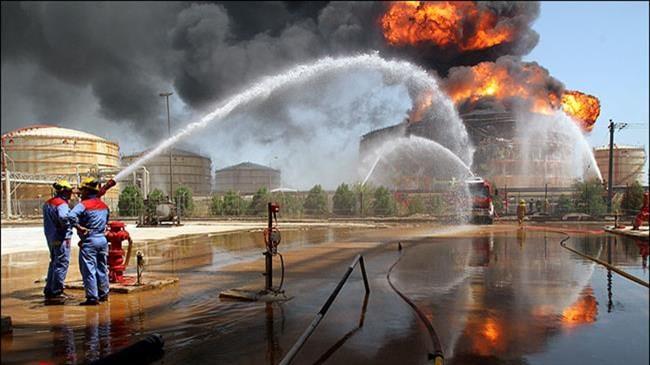
IRAN WANTS 13%

According to FT, Iran has said it will not cap its oil output despite an offer from regional rival Saudi Arabia to curb production and end the most severe oil market downturn in three decades.
Setting out a hard line ahead of a key Opec meeting in Algiers on Wednesday, Iran's oil minister Bijan Namdar Zangeneh said the country was not willing to freeze output until it had regained 13 per cent of the cartel's production.
His comments suggest a deal to end a supply glut that has hammered oil prices and shredded the budgets of producer nations will be difficult to reach this week.
This sent oil prices down sharply on Tuesday. Brent crude — which has more than halved since mid-2014 — was trading $1.25 lower at $46.10 a barrel.
Based on Opec's current production, 13 per cent would translate to around 4.2m barrels a day, or around 400,000 b/d more than Iran currently claims to be pumping as it emerges from years of western sanctions.
"At current levels we are not ready to freeze," Mr Zanganeh told reporters. "It is not on our agenda to reach an agreement in these two days."
Saudi Arabia has indicated it would back a co-ordinated production cut of up to 1m b/d to tackle a global supply glut, but only if Iran agrees to freeze output at August levels of 3.6m b/d.
That represents a shift from its policy of the last two years — to keep production high to put pressure on rivals inside and outside Opec. The kingdom has said it is prepared not only to freeze its output, but also bear the brunt of any cut.
Speaking on Tuesday, Saudi Arabia's powerful energy minister Kahlid al-Falih said this week's discussions were only "consultative".
"We will consult with everyone else, we will hear the views, we will hear the secretariat of Opec and also hear from consumers."
Analysts have said Iran's hard-line stance reflected a view that it can better withstand a further period of low prices than Saudi Arabia.
The Kingdom's fiscal situation has worsened after racking up a record budget deficit of nearly $100bn. In a drive to find new savings and raise money, Saudi Arabia on Monday announced a 20 per cent cut to ministers' salaries and a reduction of financial perks such as bonuses for public sector employees.
Iran meanwhile is in a financially better situation after the lifting of sanctions against its oil industry in January. Oil exports and production have risen and it is getting an economic boost as investment begins to return into Iran.
"[Saudi Arabia] is giving the image of a country under pressure, close to the red line in terms of budgetary balances," said Olivier Jakob of Petromatrix, a Swiss-based energy consultancy.
"Iran on the other hand is feeling less pressure on its budget from the low prices," said Mr Jakob referring to cuts made during years of sanctions and this year's supply increase.
While a deal could still emerge this week, analysts said the discussions could pave the way for an agreement to limit production in time for Opec's next ministerial meeting in November.
"The headlines look negative but an oil supply deal is definitely close and they are still talking. Getting Iran onboard is still the key and that will require compromise," said Bill Farren-Price, a consultant.
In closed-door meetings the Kingdom has discussed reducing production with others to January or August levels, the average of the first quarter or the first half of this year, three people familiar with the matter have said.
Yasser Elguindi at Medley Global Advisors said after two years of low prices that had squeezed production from higher cost rivals, such as US shale oil, Opec's position was now different.
"Cutting production in 2014 to support [prices] would have resulted in lower revenues and lost market share. Today, Opec is in a position to cut production while the increasing price would result in higher revenues. That's the big difference," he said.
Opec delegates have said that the cartel's members need to be in agreement before involving any producers outside of the group. Russia, which took part in the failed Doha talks earlier this year, will not meet with producer countries this week, Opec secretary-general Mohammed Barkindo said.
-----
Earlier:
IRAN:
IRAN'S OIL PRODUCTION: 3.63 MBD
SAUDI:
РОССИЯ И САУДОВСКАЯ АРАВИЯ ДОГОВОРИЛИСЬ
OPEC:
OPEC PRODUCTION UP TO 33.7 MBD





